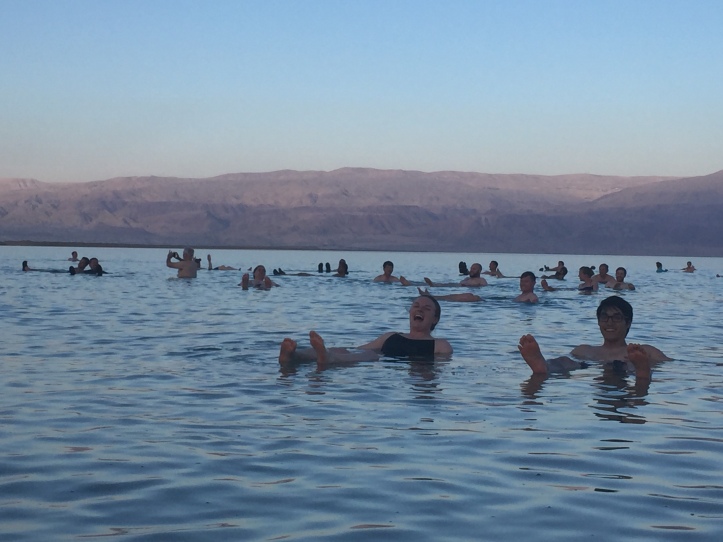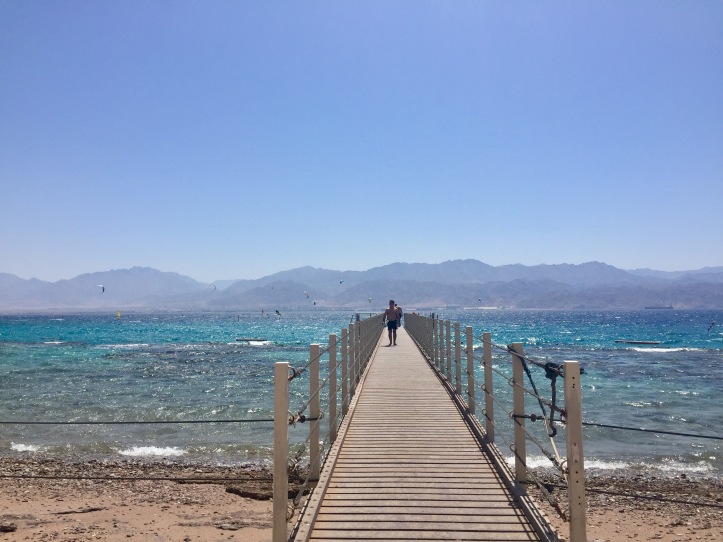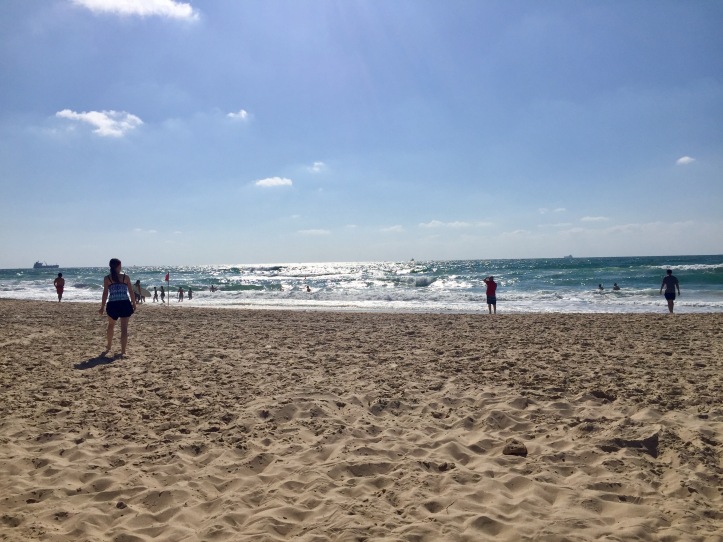What’s it like to swim in the Dead Sea? Well, to put it in the words of our awesome guide, it’s kind of like swimming in a giant container of baby oil. Oh, and it burns like crazy. Any cuts or open areas WILL feel like they’re on fire, so don’t touch your face! You’ll find cuts you didn’t even know you had. Still, it’s a once in a lifetime experience you should never pass up. To float on top of a sea that is 1400 feet deep at the lowest point on earth is simply incredible. Not to mention the minor spa benefits!
But, for the Israelites, it’s not drinkable. Not in the slightest.
Earlier on our journey, before we all jumped into the Dead Sea, we also got a small taste of the Red Sea. With rented snorkel equipment in hand, we dove into a slightly less salty sea to see the second best coral reef in the world. Dozens of fish swam past us in colors of bright yellow, blue, purple, and white. I even saw a sea cucumber that I thought was a dirty old pipe!
But, for the Israelites, it’s really far away. Like, at the bottom of the country halfway into Egypt type of far away. Just going there we were able to see Jordan, Saudi Arabia, and Egypt all on the same road.

However, before all those sea excursions, we first touched salt water with the Mediterranean. The Med Sea was a different breed than the rest; more like the oceans we visit in the states. The waves crashed into our bodies with freezing water when we tried to escape the desert heat, only to drag us against a rocky bottom. There was sand, but man were there rocks. The gashes on our feet that burned in the Dead Sea proved it. Instead of a coral reef, we actually found a tire on the bottom of the sea floor that we rolled to shore. It was painful but it was fun.
But, for the Israelites, it was controlled by Philistines. This meant enter at your own risk in biblical times. 
So, why does it matter that the seas are undrinkable? Because we are in a desert here, people! For these reasons, the Israelites had tons and tons of cisterns. We saw them in every city and at every temple or palace we visited. Deep into the ground a giant hole is found, dug into stone and cemented with plaster to keep the water from leaking out. These cisterns were meant to catch whatever rain water they could, even if for some cities that meant five inches a year. The cisterns were also meant to catch any water that flowed through the valleys. Without these reservoirs, the people and their crops would dry up and die off.
Lots of water has filled our past two days. Ideas of refreshment and thirst arise when you’re in one of the driest places on earth. It helps shine a new light on the symbolism in the Bible. It also shows us once again how much the Israelites needed to rely on God’s provision. They didn’t really have much of a choice, they needed the rain to fill their cisterns to grow their crops to feed their people.
Thus, when God claims to be our living water, not only does He claim to satisfy us, but also to provide for us. He knows our most basic and demanding needs and He meets them with His entire being. Not only does He give provision, He is provision. If we can’t trust that, we don’t fully know God.